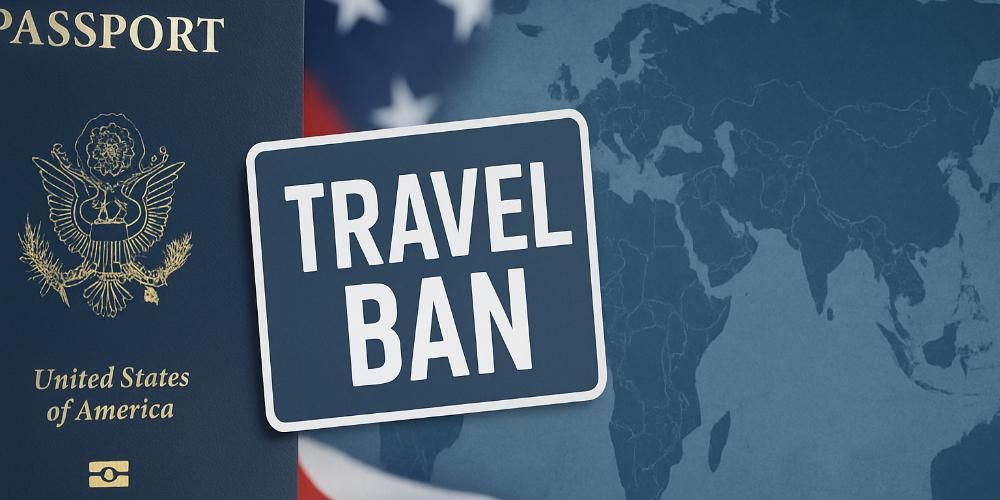The United States has reimposed a sweeping travel ban, blocking citizens from 12 countries and imposing partial restrictions on seven others in a move that has sparked widespread international condemnation.
The ban, signed by President Donald Trump and effective from 9 June 2025, affects countries including Afghanistan, Myanmar, Chad, Congo Republic, Equatorial Guinea, Eritrea, Haiti, Iran, Libya, Somalia, Sudan, and Yemen, while countries such as Venezuela and Cuba face partial restrictions.
The decision comes under the banner of protecting national security, citing threats from “foreign terrorists”. However, it has reignited concerns about discrimination and echoes the travel bans introduced during Trump’s first term, which targeted several Muslim-majority nations. Critics argue that this latest move is discriminatory and will hamper educational, economic, and diplomatic exchanges.
The African Union and several of the affected countries have voiced strong opposition to the policy, with Chad already suspending visa issuance for Americans in retaliation.
Meanwhile, there are concerns about how the ban will impact major international events the U.S. is due to host, including the 2026 FIFA World Cup and the 2028 Summer Olympics. While provisions have been made for athletes and essential personnel, the move could bar fans and family members from attending, diminishing the sense of global unity these events typically foster.
For Australians planning to travel to the United States, the ban doesn’t directly affect them, but it could lead to heightened scrutiny and delays at U.S. borders. It’s crucial to stay informed about these developments, especially if you have connections to the affected countries.
Travellers are advised to stay up to date with official advisories and liaise with the U.S. embassy or consulate for guidance.









